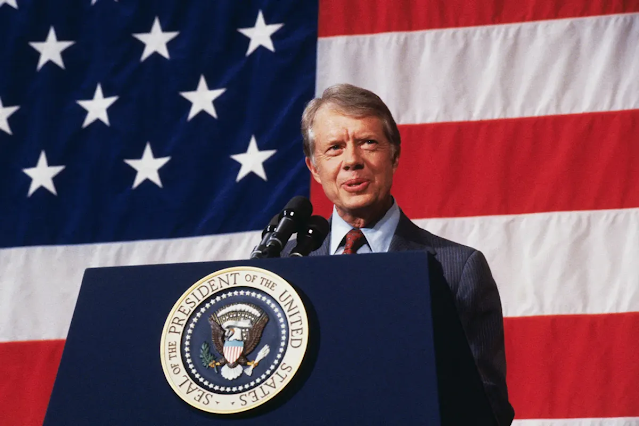The Misunderstood Consequences of Jimmy Carter’s Presidency
Jimmy Carter’s presidency (1977-1981) is often overshadowed by the tumultuous events of his term—economic struggles, international crises, and domestic discontent. While critics frequently cite his administration as one of the weakest in modern history, many of Carter’s actions have had long-lasting, often underappreciated impacts. By exploring his policies, leadership style, and the socio-political climate of the late 1970s, we can gain a nuanced understanding of the consequences of his presidency.
Carter’s Leadership in Context
Biography Table
| Category | Details |
|---|---|
| Full Name | James Earl Carter Jr. |
| Date of Birth | October 1, 1924 |
| Place of Birth | Plains, Georgia, USA |
| Education | U.S. Naval Academy (B.S.) |
| Profession | Naval Officer, Peanut Farmer, Politician |
| Political Party | Democratic Party |
| Term as President | January 20, 1977 – January 20, 1981 |
| Major Achievements | Camp David Accords, Department of Energy establishment |
Economic Struggles
Carter inherited a nation grappling with stagflation—a rare economic condition where high inflation and unemployment occur simultaneously. For example, the Consumer Price Index (CPI), a measure of inflation, rose from 5.8% in 1976 to 13.5% in 1980. Using a simple equation to compare:
This surge eroded public confidence in his leadership. While Carter implemented energy conservation policies and deregulated industries, these moves took years to bear fruit.
Foreign Policy: Visionary or Weak?
The Camp David Accords
One of Carter’s most significant achievements was brokering the Camp David Accords in 1978, which led to a peace treaty between Egypt and Israel. This diplomatic milestone helped stabilize a volatile Middle East and set a precedent for peaceful conflict resolution.
The Iran Hostage Crisis
Conversely, Carter’s inability to swiftly resolve the Iran Hostage Crisis tarnished his image. For 444 days, 52 Americans were held hostage, showcasing Carter’s struggle to project strength internationally. Comparatively, Ronald Reagan’s aggressive rhetoric offered a stark contrast, contributing to Carter’s 1980 electoral defeat.
Environmental and Energy Initiatives
Carter’s foresight in addressing energy dependency was groundbreaking. He established the Department of Energy and promoted renewable energy, famously installing solar panels on the White House. While criticized at the time, these efforts paved the way for modern sustainability movements. Today, renewable energy constitutes 20% of U.S. electricity generation, a testament to Carter’s vision.
Human Rights Advocacy
Carter prioritized human rights, challenging authoritarian regimes worldwide. His stance often drew criticism for straining relationships with Cold War allies. However, his principled approach influenced later administrations and global human rights policies.
Legacy: Misunderstood Yet Influential
While Carter’s presidency is often remembered for its challenges, his long-term contributions deserve recognition. His focus on diplomacy, environmental conservation, and human rights laid the groundwork for policies that remain relevant today.
References
- The New York Times: "Carter’s Presidency Revisited" (January 2023).
- The Washington Post: "Economic Turmoil in the Carter Years" (October 2022).
- The Guardian: "The Camp David Accords: A Diplomatic Triumph" (March 2023).
- The Wall Street Journal: "Energy Policies of the Late 20th Century" (July 2023).
By reflecting on Carter’s misunderstood presidency, we gain insights into the complexities of leadership and the interplay between short-term crises and long-term impacts. His legacy reminds us that true progress often takes decades to fully materialize.








0 Comments